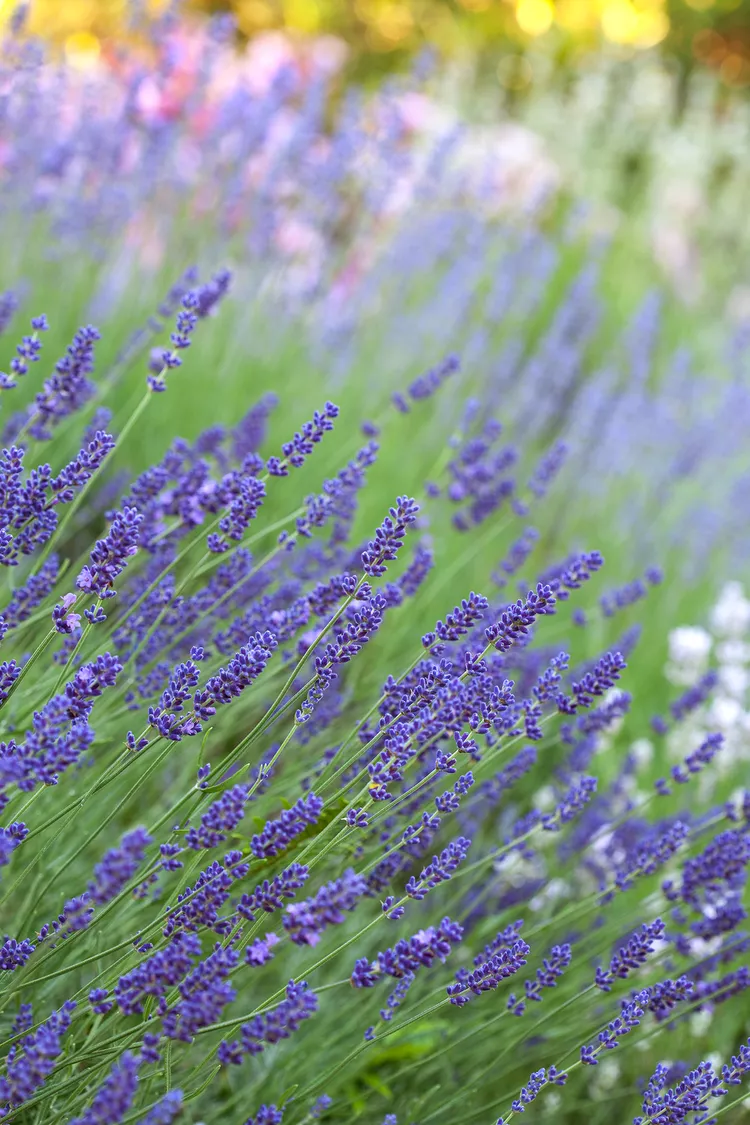Okra is a delicious and versatile vegetable that is used in numerous recipes, including flavorful gumbo. The freshness and taste of homegrown okra surpasses anything you buy at the store. Even beginning gardeners have success growing okra because it’s a low-maintenance plant. However, making sure that it has suitable neighbors is a key part of growing okra.
Companion planting has several benefits. The right companion plants keep pests away, boost harvests, and even improve the growth and flavor of vegetables. Here is a list of companion plants that will help you grow a healthier harvest crop of okra.
Basil
Strongly scented herbs are often used in companion planting as their scent helps to deter pests. Basil, in particular, keeps aphids and mites away from neighboring plants. In turn, basil leaves are less likely to develop sun scorch when grown in the shade of taller okra plants. While Genovese basil is a common basil type to grow, you may want to keep Thai basil (shown here) instead, which is commonly used with okra in an assortment of recipes.
Beans and Peas
Beans and peas are used in several ways to benefit okra plants. First, peas, beans, and other legumes add nitrogen to the soil, improving the nutrient content of gardens and supporting the growth of okra plants over time. Vining beans and peas also use the tall stems of okra as a natural trellis. Bush beans that grow lower to the ground suppress weeds and shield soil from intense sun with their dense foliage.
Cosmos
Okra is a self-pollinating plant, it doesn’t necessarily need insects to produce pods. However, pollinators are always beneficial in gardens and when they visit okra plants, they increase pollination rates and enhance your okra harvest. Cosmos flowers are top choices among pollinators and growing them in your garden lures bees, butterflies, and other beneficial insects to your okra plants. Some of these insects may also prey on okra pests, which is a win-win for you.
Coneflowers
Coneflowers are attractive native plants that are perennials throughout much of the United States. As a top pollinator plant, coneflowers will attract bees and other beneficial insects to your garden, boosting pollination rates and helping you grow a larger harvest. Plus, coneflowers are extremely low-maintenance plants and they are relatively drought-tolerant once established, which makes caring for them a breeze.
Cucumbers
Cucumbers and okra are perfect garden companions because they have similar care requirements. They both thrive in full sun and moist, rich soil. Vining cucumbers help shield the soil around okra plants, preventing weeds and reducing soil moisture evaporation. However, cucumber vines may need to be pruned or trellised to keep them from overwhelming your okra plants. Bush-type cucumbers stay much smaller. They can also be grown in container gardens along with okra.
Hot Peppers
Cabbage worms are serious garden pests that feed on a range of vegetables, including okra leaves. But planting hot peppers near your okra can keep cabbage worms away. If you want to get even more out of your pepper plants, make a homemade garden spray with hot peppers and garlic, which will repel a variety of garden pests.
Melons
Melons are good companion plants for okra due to their wide, flat leaves. The foliage acts as a living mulch around the base of okra plants, sheltering the soil from too much sun and smothering out troublesome weeds. Melons and okra also have similar growing needs and, since melons grow lower to the ground, they won’t block the light from reaching your okra plants.
Oregano
The strong aroma of oregano helps deter different pests. With its groundcover-like growth habit, oregano acts as a living mulch, keeping weeds from sprouting around the base of okra. A perennial that is winter-hardy even in cool climates, oregano will come back reliably year after year.
Radishes
Radishes are some of the fastest-growing vegetables you can grow. Planted at regular intervals around the base of your okra, you will usually get a harvest or two of radishes in before your okra ripens. Plus, radishes act as a trap crop for flea beetles. Another benefit is that their roots break up tough soils, making it easier for okra roots to spread.
Zinnias
Zinnias are another plant that pollinators can’t resist. When grown near okra, zinnias will lure in bees and other beneficial insects, which may translate into a larger okra harvest. What’s more, the scent of zinnias tends to lure whiteflies away from your okra. And, of course, the gorgeous flowers of zinnias liven up any garden in pinks, purples, oranges, and other cheery colors.
Do not plant okra next to any crop that is susceptible to root knot nematodes: eggplant, squash, tomato, and sweet potato. The microscopically small roundworms that live in the soil damage roots to the point where the plant cannot absorb water and nutrients any longer.



















